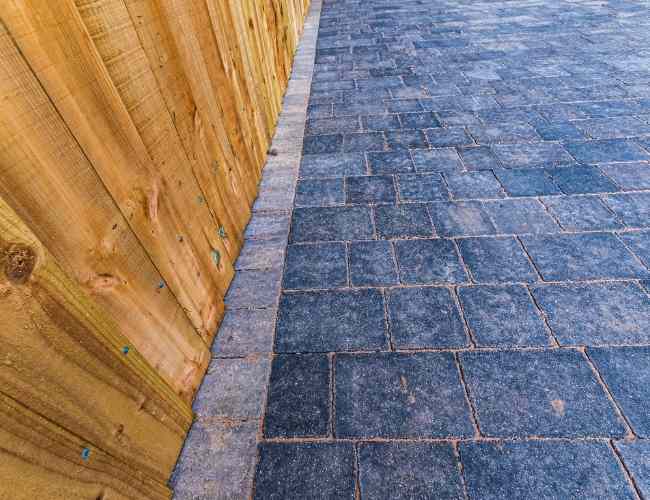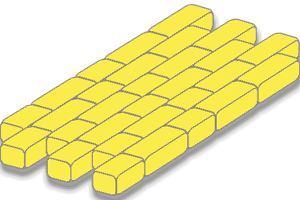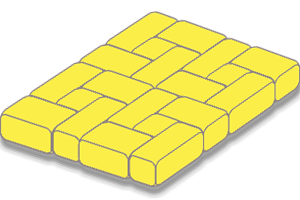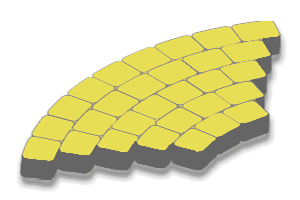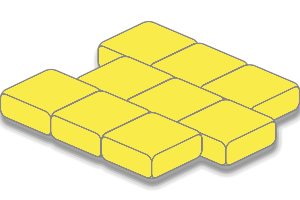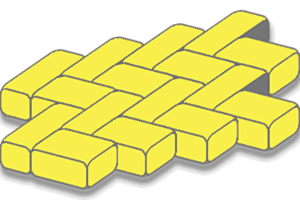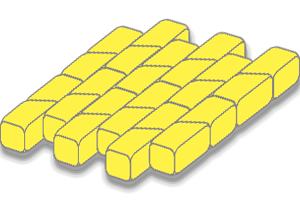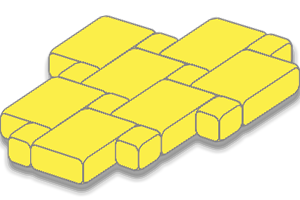Menu
close
The driveway outside your house in Knaresborough is as important as the exterior finish in terms of curb appeal. Your home could be made of natural stone or red brick. It might be expertly rendered and finished. It could look grand and imposing, but if the driveway is old and worn out, it takes away from the overall effect.
Loose gravel eventually gets scattered and patchy. Concrete driveways become cracked and tired, allowing weeds to grow through. Old asphalt driveways often have bumps and dips where the sub-base has sunk or have sprouted weeds.
You might be surprised to learn that a new driveway in Knaresborough doesn't have to cost a huge amount or cause you major upheaval during installation.
So, what is the best type of driveway?
Here are some of the most popular types to give you an idea.
Block paving driveways have become a favourite among many homeowners in Knaresborough over the years, as they offer a wide range of blocks in different colours, including terracotta, charcoal, silver, buff, brindle, and grey.
These can look amazing when installed professionally, making an attractive and durable surface that can cope with the traffic that will continually be running backwards and forwards.
There are two basic materials available: concrete block paving and natural stone. These can be paid in a variety of patterns that can bring a unique look to your driveway. The beauty of this method is that if an individual block is damaged it can easily be lifted and replaced without having to have the entire driveway re-laid.
As an alternative to solid paving blocks, you can also have grass-jointed pavers. These are used to create a hard-standing area for cars but allows grass to grow through the spaces in the blocks that let rain through into the ground.

Loose gravel creates a permeable surface that stops rainwater run-off and allows it to drain into the ground naturally. Many local councils prefer this option as it can help to reduce localised flooding. On impermeable surfaces, rainwater tends to sheet off in torrents that can overwhelm the drains, taking pollutants and debris with it. This is a real problem in urban areas as it leads to large puddles or floods.
This risk has increased over the years as more people have paved over gardens or installed new driveways in Knaresborough. Because of this, many local councils have imposed restrictions on certain types, with property owners requiring planning permission before going ahead.
Gravel driveways in Knaresborough don't normally require planning permission because of their permeable surface.
The even better news is that a good-quality gravel drive that is properly maintained can last for up to 100 years. They are easy to install, require little maintenance and make an excellent low-cost alternative.
It helps to have a buffer zone of paving stones around the driveway, as this contains the gravel better as well as providing a neat finish.
Gravel is probably the most cost-effective solution, especially for larger areas.

While the idea of concrete driveways might sound like an unappealing step backwards in time, a pattern imprinted concrete driveway (PIC) is a relatively new idea that offers a value-for-money alternative.
Rather than individual blocks, a layer of concrete is laid over a sub-base. While the concrete is still wet, a pattern is applied to create the effect of Ashlar stone, brickwork, or textured stone. A colour is then added to this, as well as a colour hardener.
This is an efficient method as large areas can be covered quickly.
One issue with PIC driveways in Knaresborough is that they are not permeable. You will need to ensure that you have surface water drainage in place to comply with the planning regulations.
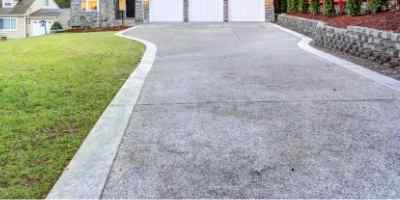
Resin-bonded or bounded driveways have the appearance of gravel but the stones are fixed in place, giving them an immediate advantage over loose gravel.
This method is fast becoming one of the most popular in the UK, and for good reason:
Added to all this, resin-bound paving can last as long as 25 years if laid properly and professionally, and will often have a 21-year guarantee that covers loose stones, loss of colour, frost damage, and frost cracking.
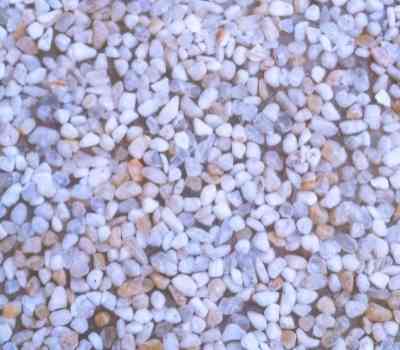
These two materials are often regarded as the same thing because they look identical, but they both have different qualities.
Let's look at what they are:
Traditionally a mix of aggregates (gravel and crushed stone) and modified tar, including small amounts of Portland cement, pitch and resin. These days it has been mostly replaced with Bitmac, which uses bitumen.
Used in 95% of all UK roads, footpaths and playparks, asphalt is made by mixing an aggregate with a petroleum-based binder, making it flexible and resistant to extreme temperatures. It is a very cost-effective solution for large areas and can be laid quickly. It also cures within two days.
Asphalt is more hard-wearing and copes with weather conditions better, making it less prone to cracking. It is also considered more sustainable as the surface can be scraped off and recycled.

To be clear, these are not traditional clay bricks as they don't make a good material for driveways. Clay bricks can't take the weight of a car constantly driving over or parking on them, and they will quickly chip and crack.
Instead, brick pavers are used, providing a solid, rustic, traditional look to your driveway.
They are a good alternative to concrete because of their stain-resistant qualities, and they are more abrasive, giving them a non-slip surface.

If you are planning a new driveway for your Knaresborough home but you're not sure which is best for you, the information above might help you discover the answer.
Overall, resin bonded (or bound) driveways come out on top as they have all the benefits listed above. However, they might not suit your property or your wallet.
In the end, it all comes down to what style you prefer, your location, and your budget. In some senses, it also depends on your reasons for upgrading your driveway. Recent studies have shown that you can increase the value of your property by as much as 10% by revamping your driveway. If you plan to sell your house, this might be an excellent way of boosting its value.
Many properties in urban centres were built in a time when few people, if any, owned cars. These days, millions of homeowners in these areas are converting the front garden to a driveway so they have a safe place to park their cars.
Before going ahead, there are a number of considerations. For example, do you need planning permission? Do you have adequate drainage on your property? Are you in a conservation area or in an urban setting that is strictly controlled? What sort of home do you have, contemporary, traditional or a period property? Do you have a garage? This last question might not seem relevant, but choosing the right style, colour and materials is important.
Once you have thought about all these factors, you need to decide which one fits your budget, which is probably one of the main considerations for most people. As a general rule, gravel driveways are the cheapest and bonded resin is at the higher end of the scale.
You'll then need to think about the colours and style of your paving.
Choosing a new driveway can be a challenge as it is important to select one that will enhance the look of your property and tie it into its surroundings, such as the garden and garage.
Finally, whether it's block paving, bonded resin, asphalt, tarmac, gravel, or imprinted concrete, your driveway should be installed professionally by Terraform Driveways. This is essential if you want the very best result.
All of these driveway options look great when laid properly. They are easy to maintain, extremely durable, and allow a lot of flexibility when it comes to creating a unique look for your home.
